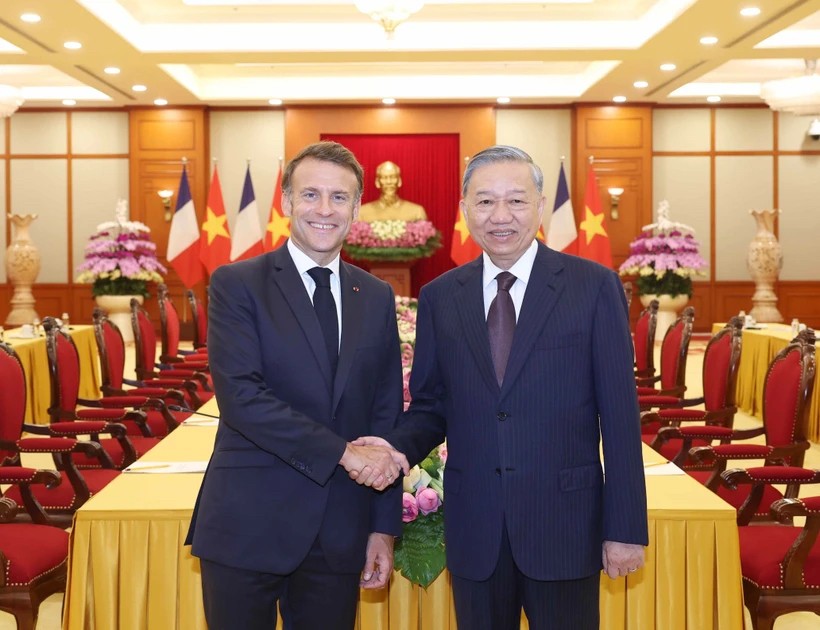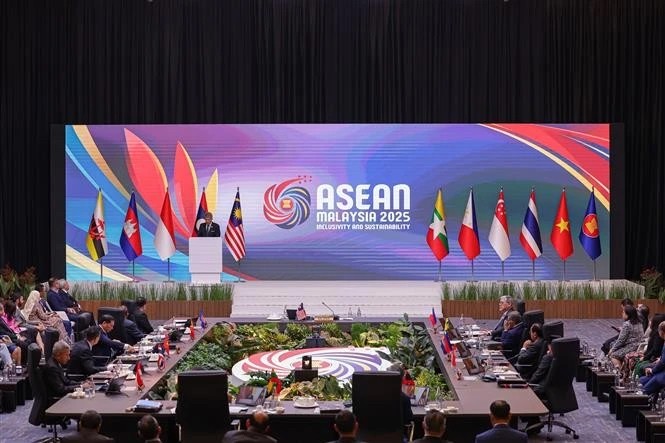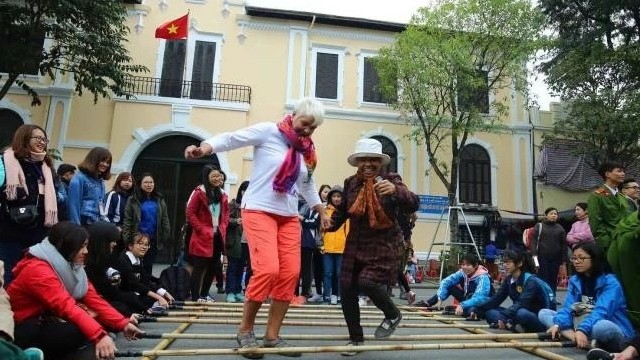Vietnam News Today (Jun. 2): Outstanding Opportunities For Vietnam to Become Regional Logistics Center
| Vietnam News Today (May 30): Vietnam Welcomes Nearly 7.6 Million Int'l Tourists in Five Months | |
| Vietnam News Today (May 31): Vietnam Ready to Facilitate Financial Co-operation With Laos |
| Vietnam News Today (Jun. 2) notable headlines Australian MP highlights Vietnam-Australia parliamentary relations Outstanding opportunities for Vietnam to become regional logistics center Festival promotes Vietnamese culture in Japan Annual Southern Fruit Festival launched in HCM City Vietnam among ASEAN leaders in green transition FDI attraction in five months tops 11 billion USD Hanoi promoting night-time economic development Action Month for Children 2024 kicks off Defense Ministry delegation meets officials of countries, partner |
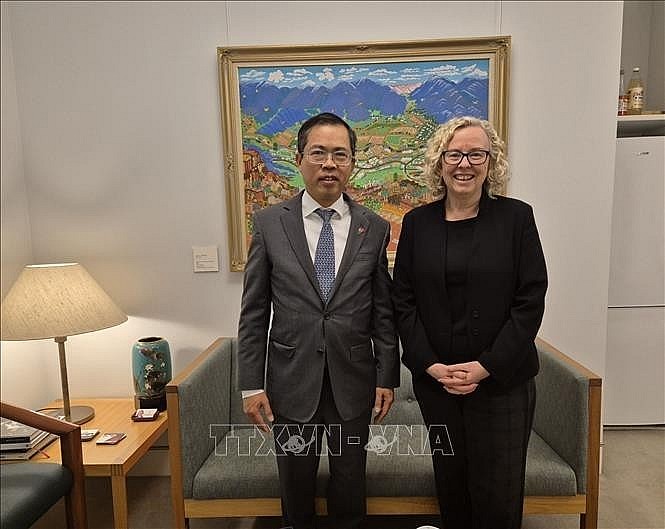 |
| Deputy Speaker of the Australian House of Representatives and Chairperson of the Australia-Vietnam Friendship Parliamentarians' Group Sharon Claydon receives Vietnamese Ambassador to Australia Pham Hung Tam in Canberra on May 31. (Photo: VNA) |
Australian MP highlights Vietnam-Australia parliamentary relations
Deputy Speaker of the Australian House of Representatives and Chairperson of the Australia-Vietnam Friendship Parliamentarians' Group Sharon Claydon spoke highly of the good relations between the legislative bodies of Australia and Vietnam while receiving Vietnamese Ambassador to Australia Pham Hung Tam in Canberra on May 31.
At the reception, Claydon emphasized her wish to promote activities of the Australia-Vietnam Parliamentary Friendship Parliamentarians’ Group, one of the largest parliamentarians groups in the Australian legislative bodies, so as to contribute to the two countries' friendship and cooperation as well as bilateral parliamentary cooperation on the basis of cooperation agreements signed by the two sides.
She extended her congratulations to newly-elected National Assembly Chairman Tran Thanh Man and greetings to Chairman of the Vietnam-Australia Friendship Parliamentarians' Group Hoang Thanh Tung, cited VNA.
She expressed her desire to increase delegation exchanges and experience sharing between the two countries through the parliament channel.
For his part, Ambassador Tam highly appreciated Claydon's contributions to the friendship and cooperation between the two countries and the two parliaments.
He suggested the Australian House of Representatives support the implementation of cooperation agreements between the two countries, especially those reached during Prime Minister Pham Minh Chinh's official visit to Australia in March.
Host and guest discussed potential for cooperation between the two countries on gender equality, climate change, energy transition, green hydrogen and offshore wind power. They talked about Vietnamese in Australia, hoping that the community will continue to grow and contribute to the two countries' friendship.
Outstanding opportunities for Vietnam to become regional logistics center
With an annual growth rate of 14% to 16%, along with geographical and natural advantages, Vietnam possesses outstanding opportunities compared to the wider region to become a logistics hub moving forward.
Huge potential for Vietnamese logistics industry
Sharing his opinion at a recent logistics event, Dr. Pham Hoai Chung, deputy director of the Transport Development Strategy Institute, said that the global logistics market scale reached about US$7.98 trillion in 2022 and is projected to hit US$18.23 trillion by 2030 with an average annual growth rate of roughly 10.7%.
With a logistics scale of about US$40 billion to US$42 billion, Vietnamese logistics is also considered to be one of the fastest growing sectors.
One factor is the great openness of the national economy through participating in 17 Free Trade Agreements (FTAs), including many new generation FTAs such as the EU-Vietnam Free Trade Agreement (EVFTA) which helps to bolster the export of goods, thereby opening up great opportunities for the logistics industry to further grow in the time to come.
The nation also ranks 43rd in the Logistics Performance Index (LPI) among the top five groups of countries in ASEAN, behind Singapore, Malaysia, and Thailand, whilst being in the same position as the Philippines.
According to Agility's assessment, 2022 saw the country placed at 11th in the group of 50 global emerging logistics markets. Regarding international logistics criteria and opportunities, the nation is ranked fourth and is considered the leading country with potential for logistics development in Southeast Asia.
Furthermore, Vietnam is also considered to have a transportation infrastructure associated with logistics with a system of roads, railways, inland waterways, seaways, and airways, according to VOV.
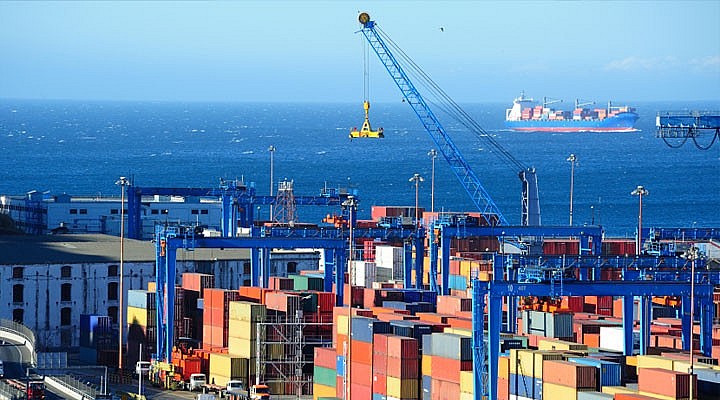 |
| Photo: tapchicongthuong.vn |
In particular, the sea route made up of 34 seaports has a total of over 100 km of wharves, with the seaport system being invested and built up along the North - South corridor. In line with this, the Vietnamese shipping fleet includes 1015 ships with a total tonnage of 10.7 million tonnes, ranking third in ASEAN and 27th in the world.
In particular, 839 coastal transport vehicles (VR-SB) have handled 100% of sea transport goods and will continue to further grow in the future.
Regarding human resources for the logistics industry, Dr. Chung said that in recent years the Vietnamese logistics industry has invested more heavily in training and developing staff. Other efforts include creating a high-quality workforce that has skills and experience in the field of logistics which in turn has helped to increase professionalism and improve the service quality of the industry.
With this analysis, Dr. Chung stated that the country boasts outstanding advantages compared to the rest of the region as it seeks to become a logistics center to serve transshipment of goods to the region and the world, including the field of transportation and transit.
Favorable mechanisms needed to turn potential into reality
Although great potential exists, according to Dr. Chung, the Vietnamese logistics sector still reveals limitations as the connection between modes of transport remains incomplete, whilst there remains infrastructure bottlenecks that need to be removed.
Road transport is still the main and dominant mode in a context where the full potential and advantages of railway transport and inland waterways has not yet been fully exploited.
Moreover, Vietnamese logistics enterprises remain limited with their small capital scale, while their operating areas are mainly domestically, with low service quality, little added value, and a general lack of connection.
In addition, the complicated nature of the world's economic and contemporary political situation is creating new unpredictable problems that can negatively impact the global supply chain, including Vietnamese logistics.
As a means of overcoming the challenges posed to the logistics industry, Dr. Chung underlined the need for the nation to invest heavily in transportation and warehouse infrastructure to enhance the ability to manage and store goods.
In particular, it can be considered necessary to focus on large urban areas and industrial zones as a way of meeting customer needs.
Businesses need to actively engage in a broad array of activities to innovate administrative procedures related to logistics to reduce time and costs for logistics activities.
It is therefore essential to improve service quality to compete in the market, including training professional staff, using modern technology to manage goods and enhance transportation processes.
Along with that, local enterprises must proactively seek and take advantage of new market opportunities to expand the scale of operations and increase revenue, Dr. Chung added.
Festival promotes Vietnamese culture in Japan
The Vietnam Festival in Japan 2024 opened at Yoyogi park in Tokyo on June 1 with art and cultural performances and over 130 booths showcasing typical Vietnamese products.
Over the past 15 years, the festival has become the largest cultural event most awaited by the Vietnamese community in Japan and local residents.
The opening ceremony saw the attendance of former Japanese Prime Minister Fukuda Yasuo, Chief Representative of the Komeito party Yamaguchi Natsuo, and Minister of Education, Culture, Sports, Science and Technology Masahito Moriyama, along with Vietnamese Ambassador to Japan Pham Quang Hieu, Deputy Minister of Culture, Sports and Tourism Nguyen Thi Thuy, representatives from associations, among others.
Speaking at the event, Ambassador Hieu highlighted that the annual Vietnam festival in Yoyogi park has become Vietnam's cultural brand in Japan. He hoped that friendly exchange activities like the festival will help promote cultural cooperation and people-to-people exchange as well strengthen trust and mutual understanding between Vietnam and Japan.
For his part, Minister Masahito Moriyama highly valued the efforts of the festival’s organizing board and the Vietnamese Embassy in Japan for successfully organizing the festival over the past years, VNA reported.
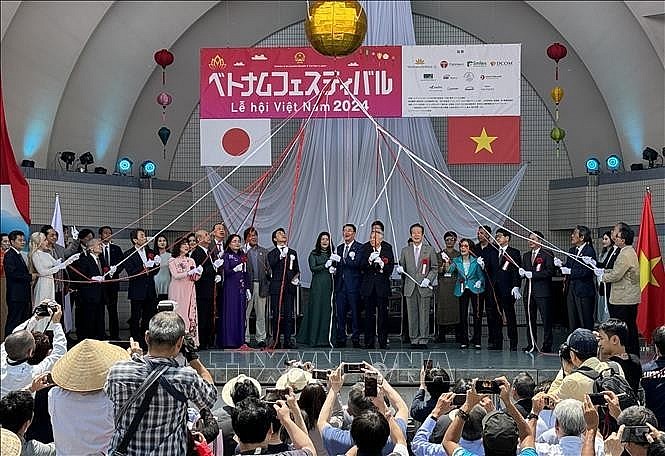 |
| Delegates at the opening ceremony of the festival. (Photo: VNA) |
He said his ministry will continue to coordinate with Vietnamese ministries and localities to further promote cooperation in fields and optimize the role of Vietnamese alumni in Japan.
In addition to more than 130 booths of Vietnamese and Japanese companies, organizations, and individuals, the two countries’ popular art troupes and bands performed at the event. In particular, residents of Tokyo and foreign tourists are very interested in the Vietnamese water puppet shows.
The festival which runs until June 2 is expected to attract hundreds of thousands of visitors.
Annual Southern Fruit Festival launched in HCM City
The 20th Southern Fruit Festival running with the theme of ‘The Happy Journey of Farming’ kicked off on June 1 at the Suoi Tien Theme Park in Ho Chi Minh City, with exciting festivities held for visitors.
In her speech at the opening ceremony, Bui Thi To Trinh, deputy general director of the park, said the annual event features a diverse and exotic range of tropical fruits grown in the country; honors farmers; and intensifies cultural and tourism activities.
It covers a market selling local specialty fruits such as plums, avocados, mangos, mangosteens, watermelons, and longans, along with OCOP products, at low prices.
Visitors can enjoy delicacies from all over the nation at a food market boasting over 20 stalls, cited VOV.
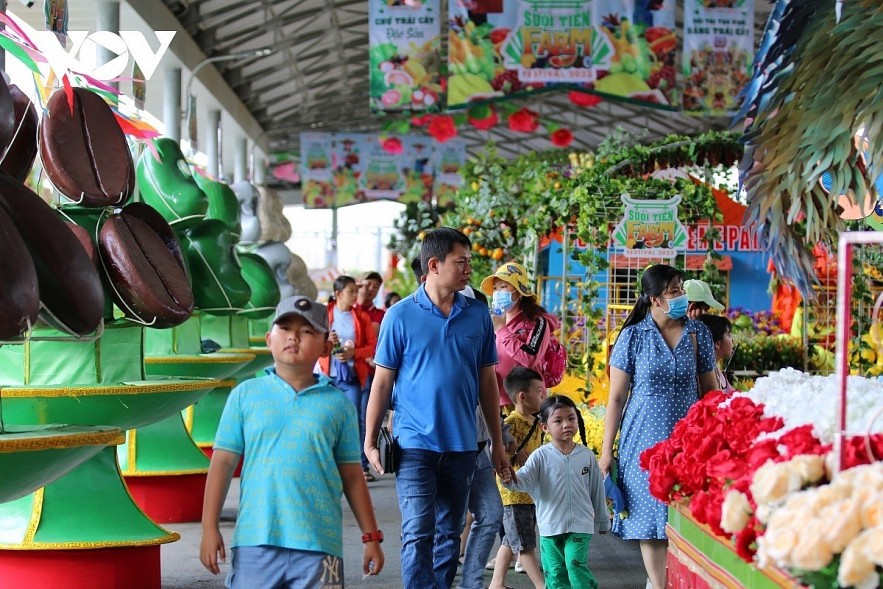 |
| Photo: VOV |
A gigantic fruit collection, parades, fruit sculptures, and musical performances are also being held on the occasion.
Besides the usual festivities, there will also be several debut events such as the Green Unity Campaign competition in which artistic projects will be created using only recycled materials.
Fruit lovers can pick their own fruits and eat them at the Suoi Tien Farm where over 30 foreign fruits are grown in line with strict organic and VietGAP standards.
The Southern Fruit Festival was recognized as an iconic tourism activity of the southern city in 2004 and typically attracts around one million visitors annually.
It is also a highly anticipated part of the second HCM City River Festival this year and will run until August 31.
Vietnam among ASEAN leaders in green transition
Vietnam has emerged as one of regional leaders in Southeast Asia’s green economy transition progress.
In the midst of an ongoing global shift towards sustainability, Vietnam has emerged as one of regional leaders in Southeast Asia's green economy transition. This leadership is not just about setting ambitious goals, but also about demonstrating measurable progress.
The Southeast Asia’s Green Economy 2024 report, recently released by Bain & Company, GenZero, Standard Chartered and Temasek, underscores Vietnam's advancements, highlighting the nation's leap in the green economy index.
Vietnam’s rise by five spots in the index reflects substantial improvements in its roadmap for a green economy. This is a testament to the country's commitment to bridging the gap between green aspirations and actual progress.
At the heart of Vietnam's green agenda lie robust commitments.
The nation has set ambitious climate targets, including a non-binding net-zero goal by 2050, with a 2030 emissions target of 781 metric tonnes of carbon dioxide equivalent, up from 458 in 2020.
Vietnam's progress includes expanding forest land, reducing emissions per capita to 4.7 tonnes, achieving 43 per cent renewable energy in power generation, attaining 3 percent battery EV sales, and curbing tree loss by 14 per cent.
To accelerate this transition, several mechanisms are in place, VNS reported.
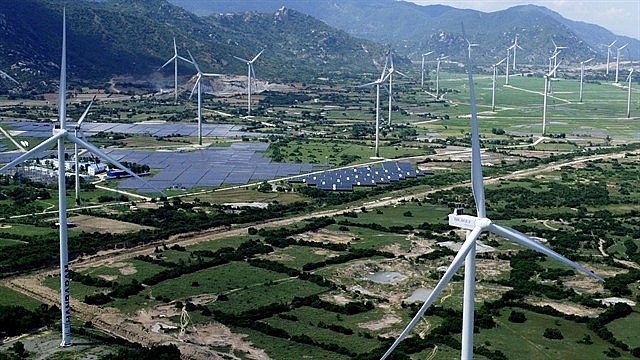 |
| Photo: VNS |
Power Development Plan VIII (PDP8), introduced in May 2023, outlines a comprehensive strategy to phase out coal by 2050, while significantly increasing the contribution of solar, wind and hydroelectric power to the national grid.
Another critical component of Vietnam's strategy is the Just Energy Transition Partnership (JETP), which plans to draw in US$15.5 billion in investment. This partnership emphasizes the importance of public-private collaboration in accelerating the green transition.
Additionally, the country is developing carbon pricing instruments and an Emissions Trading System, slated to become operational by 2028. This initiative, led by the Department of Climate Change under the Ministry of Natural Resources and Environment, is a critical step towards reducing greenhouse gas emissions and creating a market-driven approach to carbon reduction.
Emissions reporting is currently mandatory for sectors, but there's a lack of a permitting process for renewable energy electricity. Vietnam also lacks a carbon market registry and Voluntary Carbon Market standards. Initiatives like a developing carbon tax and incentives for EVs, solar power, and green buildings are underway, yet challenges persist in attracting sufficient private investments.
Despite requiring a capital investment of US$34 billion for its green transition, Vietnam secured only US$200 million in private investments in 2023.
Vietnam experienced a dramatic 79 per cent decline in private green investments in 2023. This drop is largely attributed to delays in executing major national roadmaps and the high cost of capital, which ranges from 10 per cent to 12 per cent. This financial strain underscores the urgent need for timely policy implementation and the creation of a favorable investment environment.
Regulatory uncertainties further complicate the situation. Delays in the implementation of key policies such as PDP8 and JETP have hindered large-scale investments. Additionally, Vietnam provides fewer financial incentives and subsidies for decarbonisation compared to other regions. This lack of support affects corporate willingness to invest in green technologies.
In response to these challenges, Vietnam is making strategic adjustments. The country is updating its feed-in tariffs for wind and solar projects and offering incentives for electric vehicles and green building construction.
The Ministry of Planning and Investment is also spearheading an initiative to transform 563 industrial parks into eco-friendly zones by 2030. This move aims to engage companies focused on decarbonisation and to create sustainable industrial hubs.
Additionally, in 2023, Vietnam launched its first voluntary carbon exchange, marking a key step in its carbon reduction efforts. By 2025, the country plans to pilot a comprehensive carbon exchange system to create a robust platform for carbon trading, enhancing its ability to meet emission targets and foster a carbon credit market.
Vietnam’s progress is notable compared to its ASEAN peers.
Singapore leads the way with a robust sustainability framework, including a carbon tax and strong incentives for green technologies. It climbed four spots in the green economy index. Thailand has made notable progress in solar power but faces similar regulatory and financial obstacles. Indonesia and Malaysia have seen mixed progress, dealing with regulatory ambiguity and high capital costs, each moving up by two spots on the index.
The region confronts a significant investment gap, requiring US$1.5 trillion to finance its green transition by 2030. Urgent collective action from governments, corporations, and investors is essential. Standardizing regulations, mitigating investment risks, and fostering a conducive environment for green investments through regional collaboration are crucial.
Southeast Asia's success in its green transition relies on collective efforts to embrace commercially viable green technologies, while unlocking economic benefits for a sustainable and prosperous future.
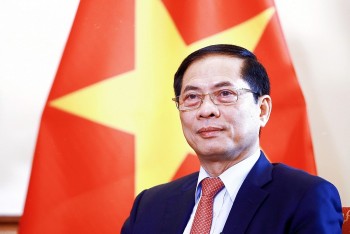 | Vietnam News Today (May 27): Foreign Minister Bui Thanh Son to Pay Official Visit to RoK Vietnam News Today (May 27): Foreign Minister Bui Thanh Son to pay official visit to RoK; Vietnam cultural, art association in Czech Republic holds 4th ... |
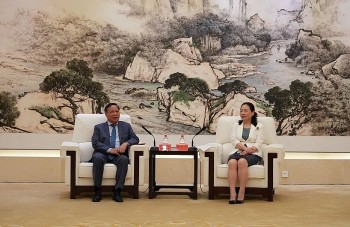 | Vietnam News Today (May 29): Hanoi Eyes Broader Co-operation With China’s Guangdong Province Vietnam News Today (May 29): Hanoi eyes broader co-operation with China’s Guangdong province; Vietnam, Laos step up cooperation in technology, innovation; Nha Trang listed among ... |
In topics
 National
National
Vietnam News Today (May 31): Vietnam Strongly Supports Laos’s National Development
 National
National
Vietnam News Today (May 30): Vietnam, Venezuela Reinforce Ties Through People-to-people Diplomacy
Recommended
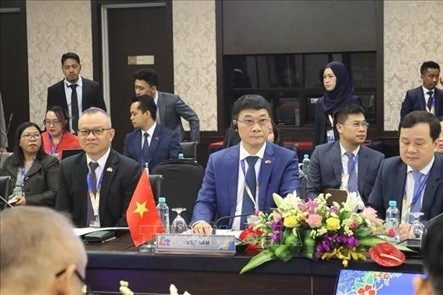 National
National
Vietnam Commits to Building an Inclusive, Sustainable and Cohesive ASEAN
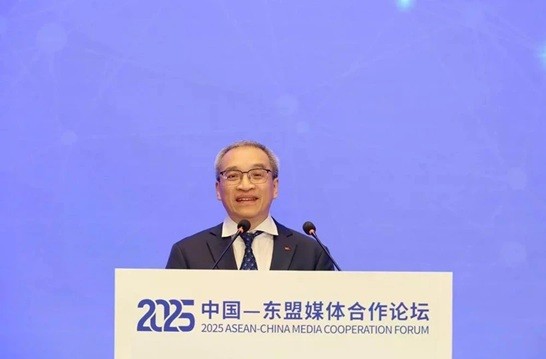 National
National
Vietnam Proposes Vision for Responsible Digital Journalism Cooperation
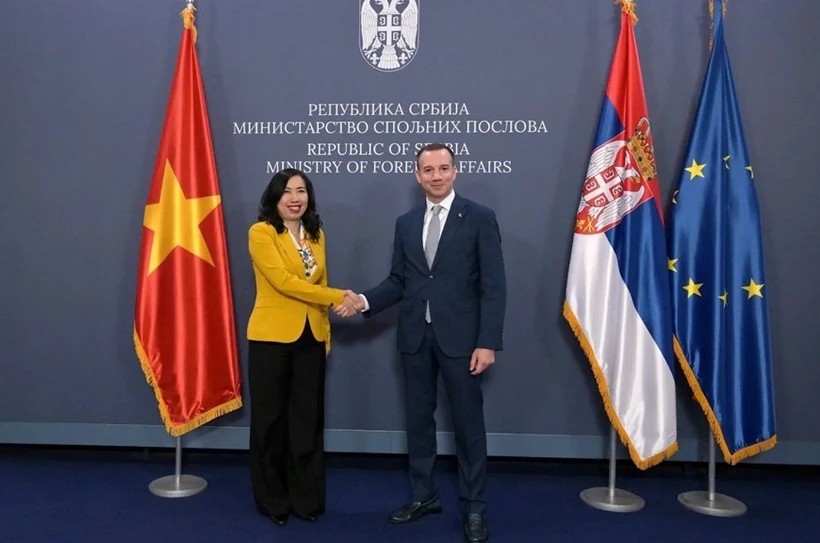 National
National
Vietnam News Today (May 25): Vietnam, Serbia Hold Political Consultation
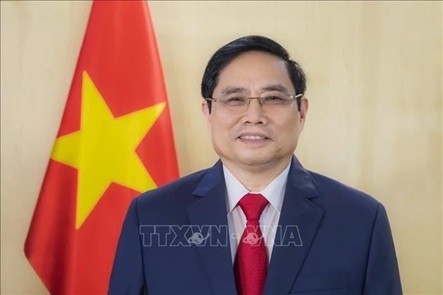 National
National
PM to Depart for Official Visit to Malaysia, Attendance at 46th ASEAN Summit
Popular article
 National
National
Vietnam News Today (May 31): Vietnam Strongly Supports Laos’s National Development
 National
National
Vietnam News Today (May 30): Vietnam, Venezuela Reinforce Ties Through People-to-people Diplomacy
 National
National
Vietnam News Today (May 29): Vietnam and Hungary to Expand Cooperation into New Areas
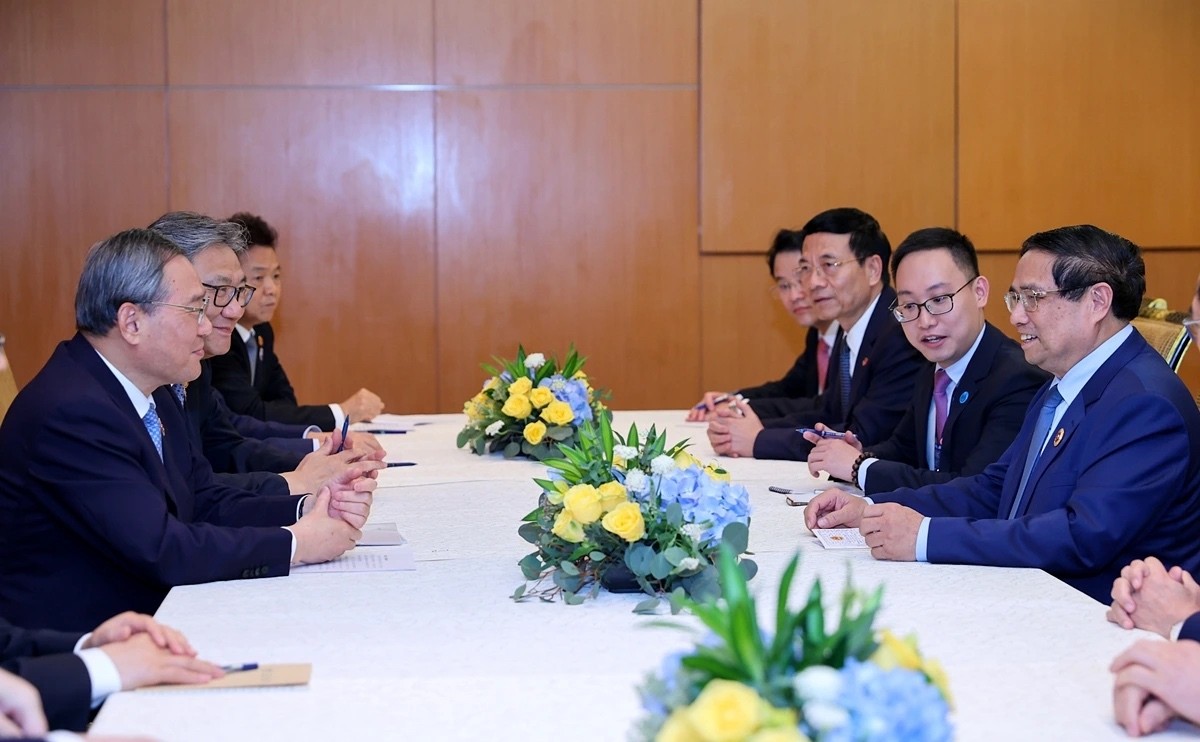 National
National




